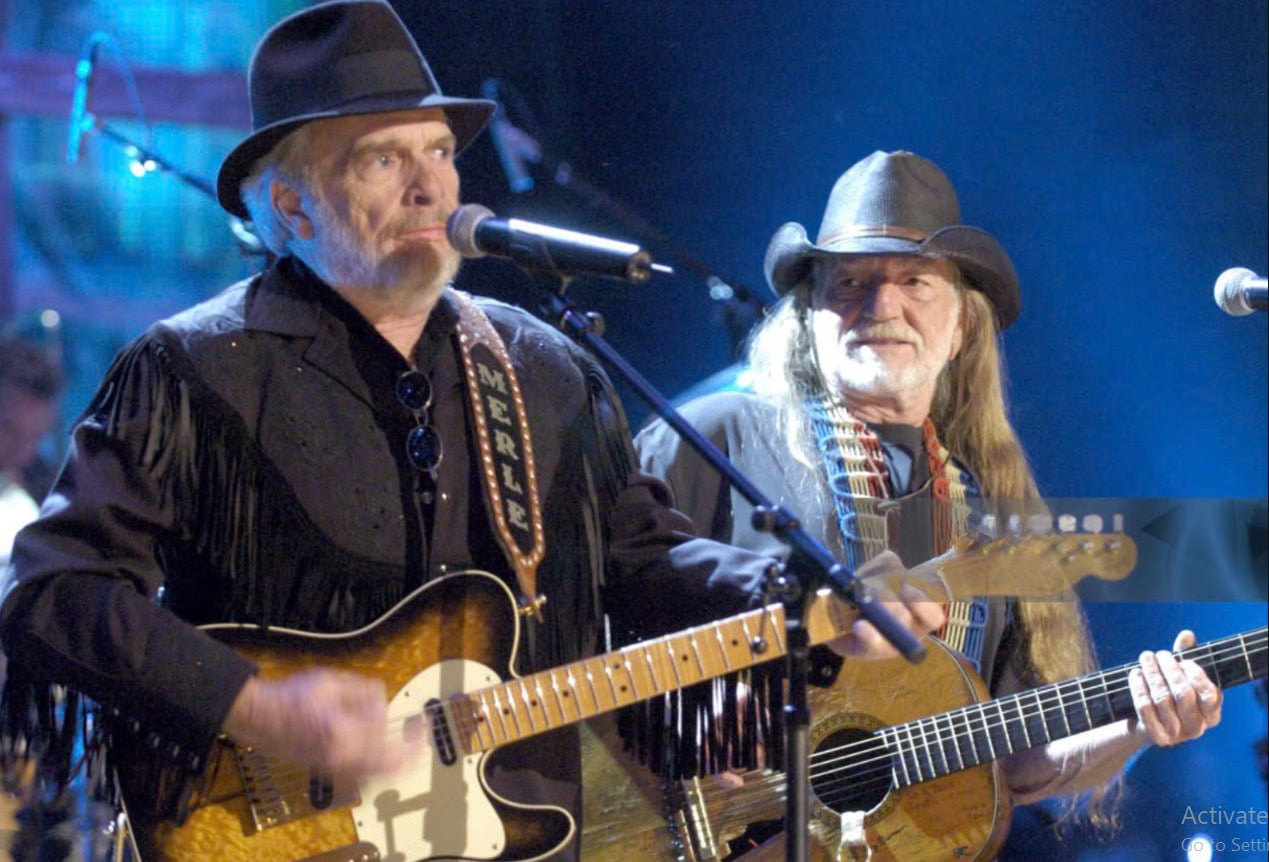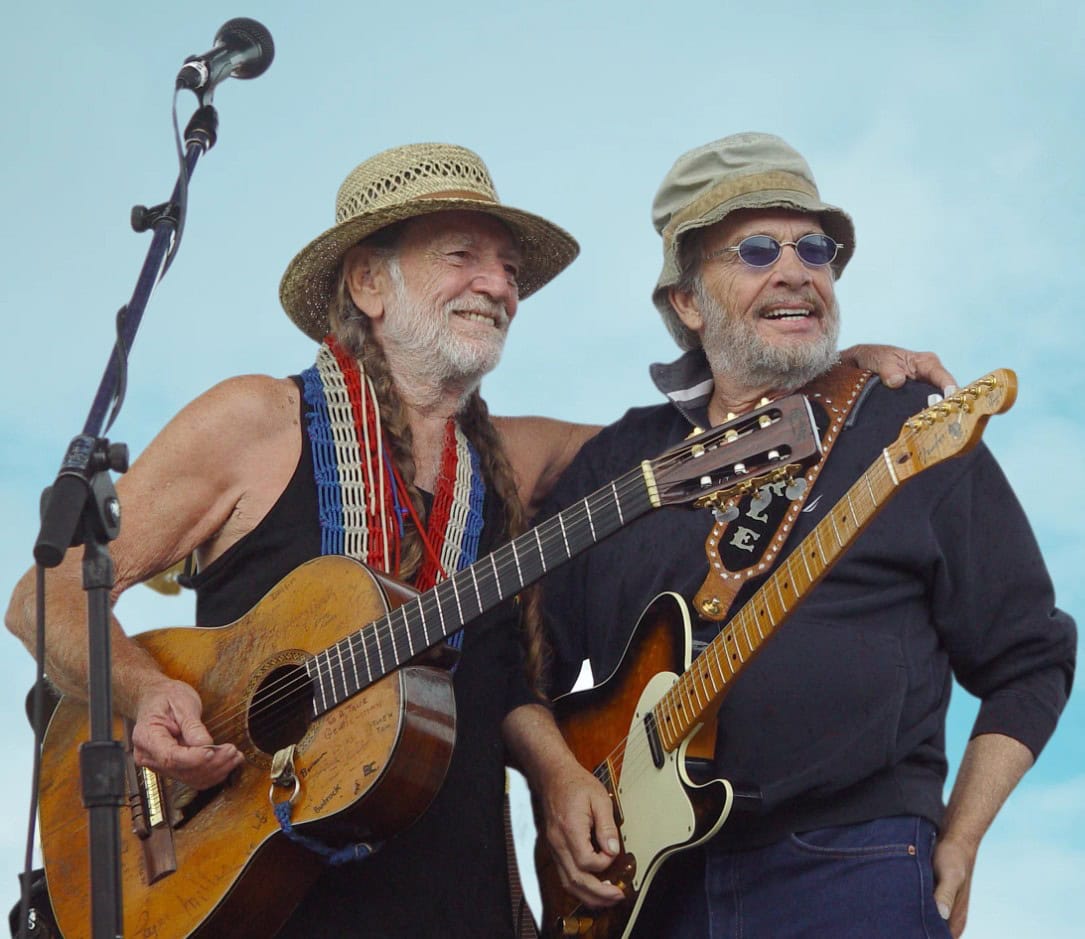
About the song
Merle Haggard and Willie Nelson’s rendition of “Okie from Muskogee” stands as a cultural and musical monument that captures the essence of a pivotal era in American history. Originally released by Haggard in 1969, the song resonates with a spirit that is both defiant and reflective, embodying the complexities of a divided nation amidst the cultural upheaval of the Vietnam War era. This duet version brings an added dimension, blending the voices of two country legends whose careers have often intertwined, yet whose styles and perspectives have provided complementary contrasts.
The song itself is often interpreted as a celebration of traditional values, drawing a sharp line between the rural, working-class ethos of small-town America and the countercultural movements that dominated the 1960s. Haggard wrote the piece as a response to the cultural shifts he observed, channeling the voice of the “silent majority” who felt alienated by the sweeping changes in societal norms. The title references Muskogee, Oklahoma, a symbol of Middle America, where patriotism, hard work, and respect for traditional mores were revered.
What makes this rendition particularly compelling is the interplay between Haggard’s gravelly, straightforward delivery and Nelson’s distinctively smooth, slightly rebellious tone. Nelson, who is often associated with the outlaw country movement that challenged Nashville’s conventions, adds a layer of nuance to the song’s narrative. Together, their voices reflect a shared reverence for the values of rural America, while also suggesting a broader dialogue about identity and belonging.
For all its simplicity, “Okie from Muskogee” is layered with complexities that invite varied interpretations. Is it a genuine anthem of pride, a tongue-in-cheek critique, or perhaps a bit of both? Haggard himself admitted to elements of satire in the song, though its earnest resonance with audiences suggests that its appeal lies in its ambiguity. The duet allows listeners to experience the song not just as a statement, but as a conversation—one that bridges generational divides and invites reflection on the ever-shifting landscape of American identity.
As you listen to this duet, consider its historical context and the enduring relevance of its themes. It’s more than a song—it’s a snapshot of America, reframed through the voices of two legends who have always had a finger on the pulse of the people.
Video
Lyrics
We don’t smoke marijuana in Muskogee
We don’t take our trips on LSD
We don’t burn our draft cards down on Main Street
We like livin’ right, and bein’ free
We don’t make a party out of lovin’
We like holdin’ hands and pitchin’ woo
We don’t let our hair grow long and shaggy
Like the hippies out in San Francisco do
I’m proud to be an Okie from Muskogee,
A place where even squares can have a ball
We still wave Old Glory down at the courthouse,
And white lightnin’s still the biggest thrill of all
Leather boots are still in style for manly footwear
Beads and Roman sandals won’t be seen
Football’s still the roughest thing on campus
And the kids here still respect the college dean
WAnd I’m proud to be an Okie from Muskogee
A place where even squares can have a ball.
We still wave Old Glory down at the courthouse
And white lightnin’s still the biggest thrill of all
And white lightnin’s still the biggest thrill of all
In Muskogee, Oklahoma, USA.https://youtu.be/5feWCmPYFeM
